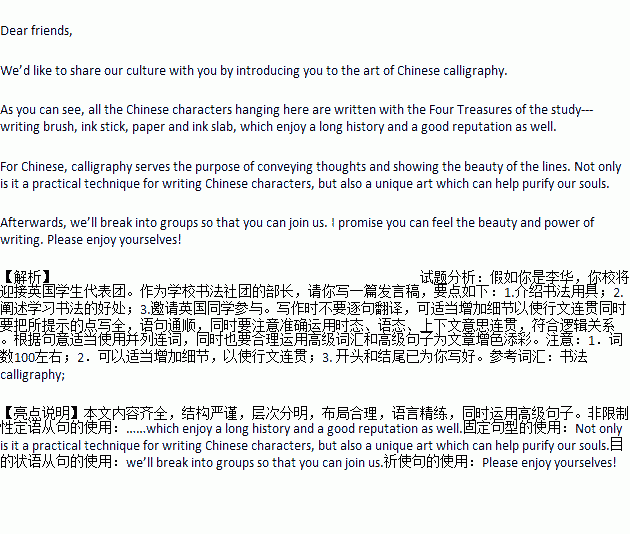题目内容
第二节 书面表达(满分25分)
假定你是李华,你校将迎接英国学生代表团。作为学校书法社团部长,请你写一篇发言稿,要点如下:
1.介绍书法用品
2.阐述书法学习的好处
3.邀请英国学生参加书法练习活动
注意:
1. 词数100左右;
2. 可以适当增加细节,以使行文连贯
3. 开头以为你写好。
参考词汇 书法calligraphy
文房四宝 the Four Treasures of the Study (writing brush, ink stick, paper, ink slab)
Dear friends,
We’d like to share our culture with you by introducing you to the art of Chinese calligraphy.
_____________________________________________________________
____________________________________________________________________________________________________________________________________________________________________________________________________________________________________________________________________________________________
Yours,
Li Hua
练习册系列答案
相关题目

